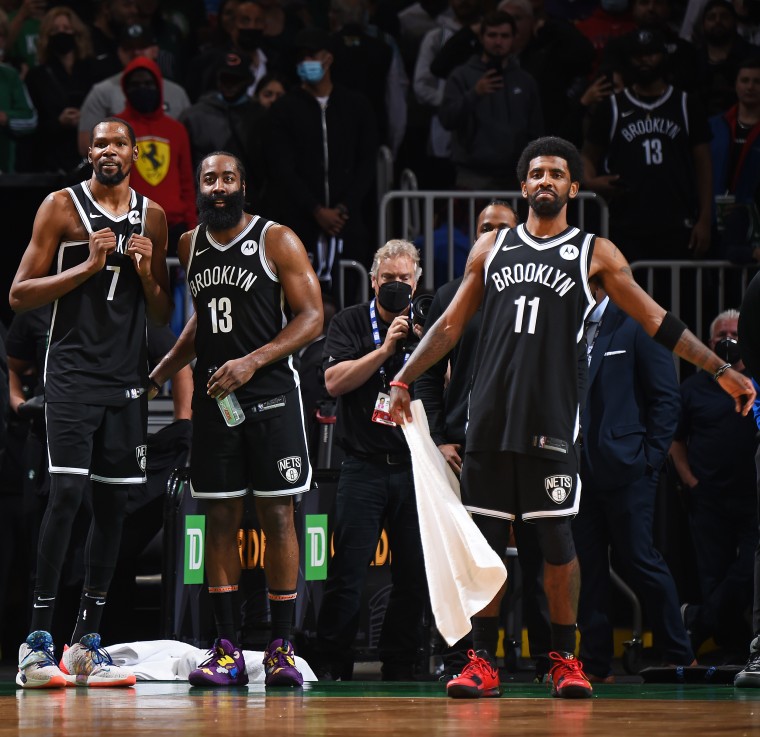Tonight, the NBA Finals begin, and it is not, fair to say, the most marquee of matchups: Milwaukee vs. Phoenix. But this is a good thing. This is what we should want, even if we have to sort of talk ourselves into it.
Since LeBron James made his infamous decision to join the Miami Heat the notion of athlete empowerment has taken over professional sports.
In the last decade since LeBron James made his infamous decision to join the Miami Heat — a seminal event in NBA history — the notion of athlete empowerment has taken over professional sports. Athletes have more power than ever before, and they are, at last, taking full advantage of it. Players are speaking out on political matters, and in June, Carl Nassib announced his historic coming out. They’re wielding more economic influence, and they’re using social media to control the conversation.
The “shut up and dribble” people have lost this battle, whether they realize it or not. It’s going to be thrilling to see young, exuberant athletes running the next several decades of sports rather than old legacy white men. It’s a long overdue change.
But one change that has arguably been quite empowering for athletes has had the opposite effect for the rest of us: the inevitable construction of NBA superteams.
Pioneered by James' decision — though the proto-superteam has to be the Kevin Garnett-Ray Allen-Paul Pierce Celtics — superteams are the Marvel “Avengers” of the NBA. The LeBron James-Dwyane Wade-Chris Bosh Miami Heat was pretty much perfect and was followed by a flurry of trades as other teams attempted to follow suit: Kawhi Leonard to the Clippers, James and Anthony Davis to the Lakers and Kevin Durant, the master of the form, joining Kyrie Irving (and eventually James Harden) in Brooklyn. New superstars are eager to join them: This whole offseason may revolve around what happens with Damian Lillard and potentially Leonard again and with whom they decide to join forces.
In theory, and in principle, I am all for these moves. Players should be able to go wherever they want. If they want to go play with fellow superstars, they absolutely should do that. It’s 100 percent what I would do — were I somehow a superstar athlete. Generations of NBA players have been stuck with lousy teams, with little to no autonomy. Their sacrifices got us to this point of athletes having more control. It’s a good thing. It should be what we want.

But in practice, even as I support all this, I find myself always, always rooting against these teams. Said behavior goes against my stated values and beliefs, and thus is illogical. (But jeez, when has watching sports ever been logical?)
The thing about superteams is that while they are totally within the rules and even morally preferable to having some general-manager-type artificially deflate salaries via young players and efficient, “Moneyball"-esque roster constructions, they absolutely feel unfair. That Harden, Irving and Durant — three of the 15 best basketball players on the planet — have ended up on the same team is the result of decades of positive basketball evolution. But as an observer and fan, it can’t help but feel a little wrong, no?
When one team has all the best players, I mean, of course they’re going to win (usually). Where’s the fun in that? That these particular superstars all play together all on a nascent, just-got-here team like the Brooklyn Nets doesn’t help; it makes the whole thing feel oddly nouveau riche, like a corporation that has taken over the whole block. (It’s worth noting this is being written by a Knicks fan.)
In practice, even as I support all this, I find myself always, always rooting against these teams.
That’s also why when the Nets lost to the Bucks in the Eastern Conference semifinals, it felt like some revolutionary upset — even though it absolutely should not have. The Bucks have Giannis Antetokounmpo, a two-time MVP and maybe the best basketball player on Earth. But pitting him against the three-headed gorgon of Durant-Harden-Irving turned him into an underdog: a 6’11 David finding a way to fell a somehow even larger Goliath.
That’s the weird dichotomy of superteams: They’re so specifically constructed to win that you catch yourself always cheering for them to lose. There is nothing particularly unlikable about Durant, Irving or even Harden; all three of them are walking, dunking odes to the achievements the most talented humans can push themselves to achieve. But when you put them together, the deck appears stacked.
Again, this isn’t inherently logical. If anything, it proves the collective, positive power of workers finally uniting. But in the world of professional sports, this sort of machination always plays differently than it should. And good luck changing fans’ attitudes on this: Fans never root for anything in theory. They’re watching the actual game happening right now.
As it turns out, this particular postseason is a feather in the cap of those who dislike superteams. Durant’s Nets are out; so are James' Lakers; so are Leonard’s Clippers. The NBA Finals matchup features Milwaukee and Phoenix, two teams constructed organically and meticulously, the “old-fashioned” way.
But will this make the fans happy? Not necessarily. After all, who wants to root against either one of those teams? Sports needs good guys and bad guys, and this may be the ultimate utility of superteams: They give you someone to root against. I might not want the Nets to win, but I will watch them.
Will fans tune in to an NBA Finals with so fewer stars? We’ll find out. I’m glad the superteams lost. But this week, I may end up missing them.

